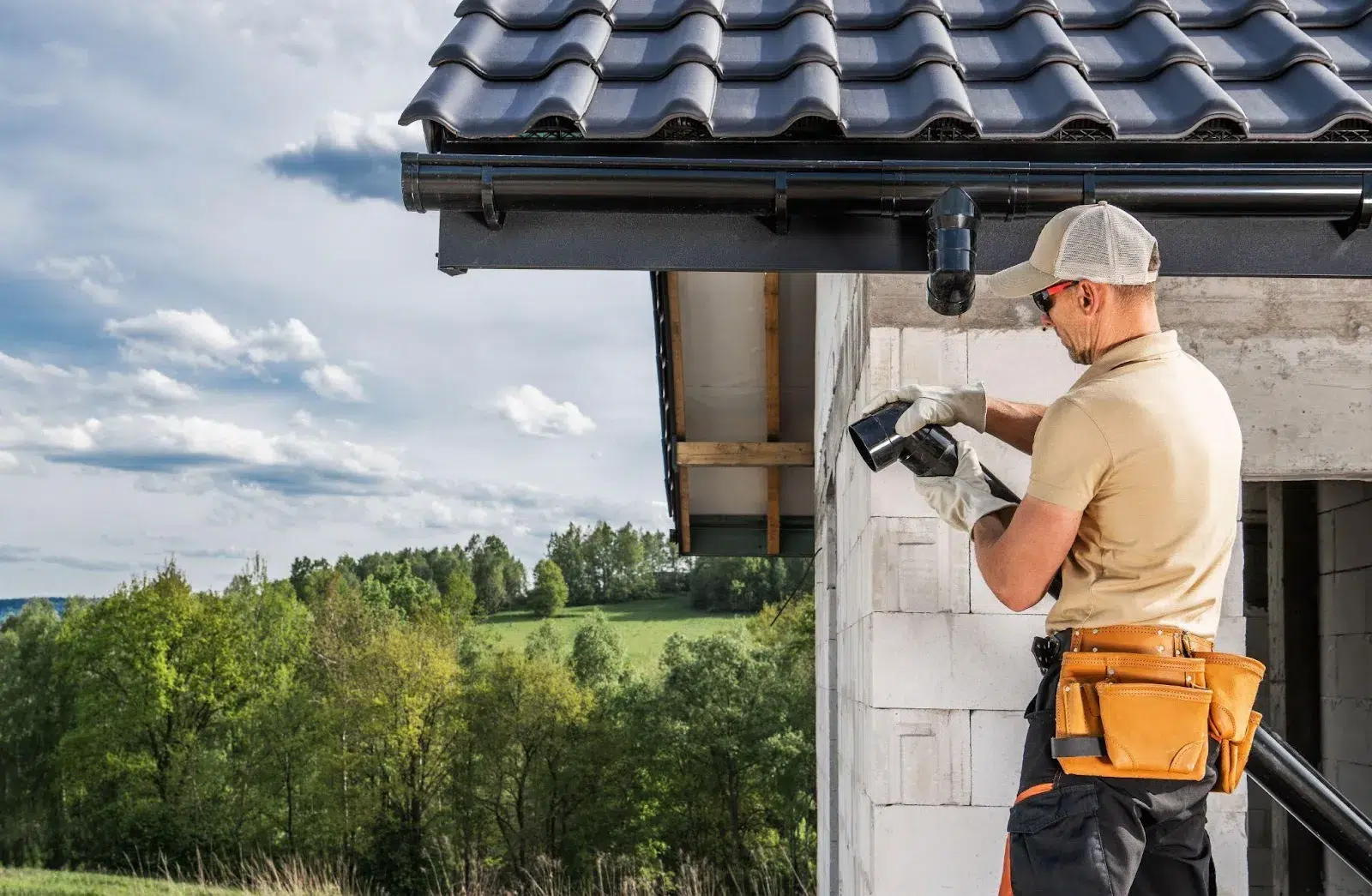Owning and investing in a healthy, well-maintained lawn and yard garden not only enhances the beauty of properties in Hamilton, Ontario, but it also adds substantial value. If you’re wondering how to spread mulch in Hamilton, creating a lush, well-kept outdoor space is key.
This effort creates a relaxing and appealing environment, improving overall well-being for seniors, homeowners, and their families. However, to achieve this, it is crucial to address yard maintenance needs effectively. One essential practice in keeping lawns in good shape and visually appealing is mulching.
Mulching offers numerous benefits.
Firstly, it helps retain moisture in the soil, reducing the need for frequent watering—an important factor given Hamilton’s fluctuating weather conditions.
Additionally, mulch acts as a barrier against weed growth, suppressing unwanted plants that compete for essential nutrients.
It also regulates soil temperature, keeping it cooler in the summer and warmer in the winter. These benefits contribute to a healthier lawn and garden, making them more resilient and vibrant.

However, inadequate mulching and poor lawn maintenance can have significant implications. Neglecting proper mulching can lead to several issues.
Without adequate mulch, soil can dry out quickly, necessitating more frequent watering and increasing water bills.
Moreover, insufficient mulch allows weeds to thrive, which can compete with your plants for nutrients and lead to increased use of herbicides or manual weeding efforts.
Improper mulching can also cause soil erosion, which undermines soil structure and plant health.
From a cost perspective, neglecting lawn and garden maintenance can be expensive. The need for frequent repairs, additional treatments for pests, and erosion control can quickly add up.
More critically, a poorly maintained lawn can decrease property value, making it less attractive to potential buyers and impacting resale value.
A well-kept garden, on the other hand, enhances curb appeal and can increase the overall value of your property.
To avoid these issues, it is wise to leave the task of mulching and other yard maintenance to professionals.
A professional lawn maintenance company in Hamilton like Custodia has the expertise and tools to ensure that your garden receives the proper care it needs.
By choosing a professional service, you can ensure your lawn remains in top condition, enhancing both your property’s value and your family’s enjoyment of your outdoor space.
How Do I Choose The Right Mulch For My Garden In Hamilton?

Selecting the right mulch for your garden in Hamilton is essential for optimizing plant health and ensuring your garden thrives in the local climate.
The choice of mulch can significantly impact moisture retention, weed control, soil health, and the overall aesthetics of your garden.
Given Hamilton’s unique weather patterns, with hot summers and cold winters, choosing a mulch that meets your garden’s specific needs is crucial.
Additionally, the type of mulch you choose can affect not only the health of your plants but also the long-term sustainability and maintenance of your garden.
To make an informed decision, consider the following key factors:
1. Plant Type and Garden Use
- Organic Mulch
Best suited for areas where soil enrichment is important, such as flower beds, vegetable gardens, and around trees and shrubs.
Organic mulches like wood chips, bark, straw, and compost gradually decompose, adding valuable nutrients to the soil, improving soil structure, and enhancing the microbial activity essential for plant growth.
- Inorganic Mulch
Ideal for decorative areas, pathways, and spaces where low maintenance is a priority. Inorganic options like gravel, stones, and rubber mulch are long-lasting and provide a clean, modern look.
While they don’t add nutrients to the soil, they’re excellent for preventing soil erosion and controlling weeds without the need for frequent replacement.
2. Climate and Weather Conditions
- Hamilton’s Climate
Given the region’s temperature fluctuations, it’s important to choose mulch that effectively regulates soil temperature.
Organic mulches, such as wood chips or leaf mold, excel at insulating the soil, keeping it cooler in the summer and warmer in the winter, which can be crucial for protecting plant roots from extreme temperatures. (Read more about, When To Start Cutting Grass After Winter)
- Wind and Rain Resistance
In areas exposed to strong winds or heavy rain, heavier mulches like bark nuggets or stone are recommended.
These types of mulch are less likely to be displaced by weather conditions, ensuring that your garden remains neat and your plants protected.
3. Aesthetic Appeal
- Color and Texture
Mulch plays a key role in the visual appeal of your garden. Dark-colored mulches like pine bark can create a striking contrast with green foliage, while lighter options such as straw or wood shavings offer a more natural, rustic look.
Choose a mulch that complements the style and color scheme of your garden for a cohesive appearance.
- Uniformity
For a polished and professional look, use the same type of mulch throughout your garden. This creates a consistent appearance and enhances the overall design of your outdoor space.

4. Budget and Availability
- Cost-Effective Choices
If budget constraints are a consideration, locally sourced mulches, such as chipped bark or composted leaves, are often more affordable and environmentally friendly.
Buying in bulk can also reduce costs and ensure you have enough mulch for the entire season.
- Availability
Ensure that the mulch you choose is readily available in Hamilton. Consistency in mulch type is important, especially when it comes time to top up or replace the mulch.
Locally available mulch also supports the local economy and can be more sustainable.
5. Environmental Impact
Organic mulches contribute to the health of your soil over time, as they break down and release nutrients.
This improves soil fertility and structure, which is essential for the long-term health of your plants. In contrast, inorganic mulches do not decompose and, while low-maintenance, do not enhance soil quality.
How Much Mulch Do I Need for My Garden?
Determining the right amount of mulch for your garden is crucial for achieving effective coverage, moisture retention, and weed suppression.
The amount you need depends on factors such as the size of your garden, the type of plants you have, and the desired depth of the mulch layer.
How do I calculate how much mulch I need?
Here are some key considerations to help you calculate the right amount:
1. Measure the Area
Square Footage: First, measure the length and width of the garden bed to determine the total square footage. This measurement will be the basis for calculating how much mulch you need.
2. Desired Mulch Depth
2-3 Inches: For most gardens, a 2-3 inch layer of mulch is sufficient. This depth provides enough coverage to suppress weeds, retain moisture, and regulate soil temperature.
3. Use a Mulch Calculator
Many online mulch calculators allow you to input your garden’s dimensions and desired mulch depth to determine the exact amount needed, typically expressed in cubic yards or cubic feet.
4. Bulk vs. Bagged Mulch
1 Cubic Yard: One cubic yard of mulch typically covers about 100 square feet at a 3-inch depth. Use this as a reference when purchasing mulch in bulk or in bags.
By accurately measuring and calculating, you can ensure that you purchase the right amount of mulch, avoiding waste or the need for multiple trips to the store.
For a professional inspection and to ensure your garden gets the care it needs, contact Custodia today. Our experts are ready to help you achieve a beautiful, healthy lawn.
Call us now at 1-833-410-4357 to schedule your consultation!
5 Mulching Maintenance Tips for Seniors in Hamilton
As we mentioned earlier, mulching is a vital part of garden care, providing several benefits. However, for seniors, maintaining mulch can be challenging due to physical demands and potential risks.
Here are five essential mulching maintenance tips:
1. Regular Inspection
Regularly check your mulch to ensure it hasn’t eroded or thinned out. Mulch that has washed away or compacted can no longer provide effective weed control or moisture retention.
Frequent inspections help catch issues early, preventing more significant problems and ensuring your garden remains healthy.
2. Weed Control
Weeds can quickly infiltrate and disrupt the effectiveness of your mulch. Regularly removing weeds is crucial to prevent them from competing with your plants for nutrients and water.
Keeping weeds in check also helps maintain the aesthetic appeal of your garden.
3. Adjust Depth
Mulch should be maintained at a depth of 2-3 inches. If it becomes too thin due to weather conditions or natural decomposition, add more mulch to restore the optimal thickness.
Proper depth ensures effective moisture retention and weed suppression.
4. Monitor Moisture Levels
Check that the mulch is retaining adequate moisture for your plants. During dry periods, you may need to water more frequently.
Ensuring that mulch is adequately moist helps keep plant roots healthy and supports overall garden health.
5. Avoid Mulch Piles
Keep mulch away from plant stems and tree trunks. Piling mulch against these areas can cause rot, attract pests, and hinder plant growth.
Proper placement ensures that mulch provides the intended benefits without causing harm.
Read also, Spreading Mulch Tips In Mississauga
For seniors, hiring professionals for mulching maintenance can be a practical choice. Professionals, like Custodia, can handle the physical aspects of mulching and ensure proper application and upkeep.
This approach reduces the risk of injury and guarantees expert care for your garden.
Contact us for a free professional consultation and let the experts manage your mulching needs, allowing you to enjoy a well-maintained garden without the hassle.
Frequently Asked Questions About Mulching and Garden Health
1. How can I control weeds with mulch?
Mulch controls weeds by blocking sunlight, which prevents weed seeds from germinating. Apply a 2-3 inch layer of mulch to effectively suppress weed growth.
2. How often should I reapply mulch?
Reapply mulch once a year, typically in spring, to maintain its effectiveness. However, check your mulch periodically—if it’s thin or decomposed, add more.
3. How do I mulch around trees and shrubs?
Spread mulch in a 2-3 inch layer around the base, leaving a gap around the trunk or stem to prevent rot. Mulching too close can harm the plant.
4. What types of mulch are best for suppressing weeds?
Organic mulches like bark, wood chips, and straw are excellent for weed suppression. These mulches decompose over time, enriching the soil while keeping weeds at bay.
5. What should I do if my mulch starts to smell?
A foul smell usually means the mulch isn’t getting enough air, leading to anaerobic decomposition. To fix this, turn the mulch to introduce air and break up any clumps. If the smell persists, it might be time to replace the mulch.
For a hassle-free solution, contact Custodia—our professionals can assess the issue, refresh your mulch, and ensure your garden stays healthy and odor-free.




